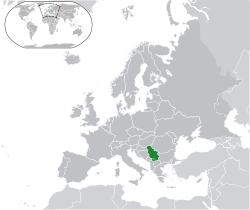EU Countries Split Over Serbian Bid
By Marija Ristic
Ahead of a meeting of EU foreign ministers, member countries remain divided over whether to offer Serbia a start date for membership talks this year or next.
Senior officials in Brussels officials say that a split has emerged among EU member states on Serbian membership negotiations ahead of Tuesday’s meeting of foreign ministers.

“Italy, Austria, Greece and Cyprus favour rewarding Serbia with a conditional start to negotiations at this meeting, which would be put into action at the beginning of the year, as was done with Montenegro,” the source told Balkan Insight.
“But Germany, Britain and The Netherlands believe that while Serbia and Kosovo have made progress in negotiations, their agreements are yet to be implemented, and their stance is that the [European] Council should discuss Serbia’s membership talks in March,” the same source added.
Montenegro obtained a so-called conditional date for start to EU negotiations in December 2011, obliging it to meet specific criteria in order to open negotiations in June 2012.
Serbia obtained EU candidate status in March and is hoping to get the start date for accession talks by the end of this year.
Normalization of relations with Pristina is the key precondition for Serbia’s further progress on the EU path.
On Tuesday the EU ministers will prepare for the European Council meeting on December 13-14 and discuss draft conclusions to be submitted to EU heads of state or government.
